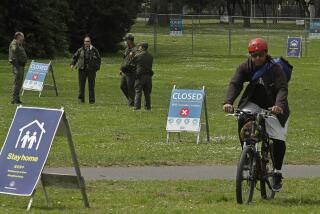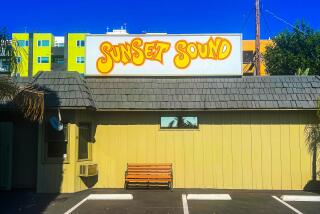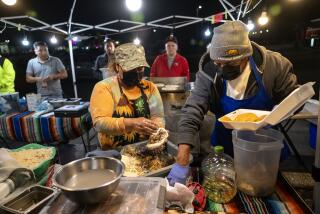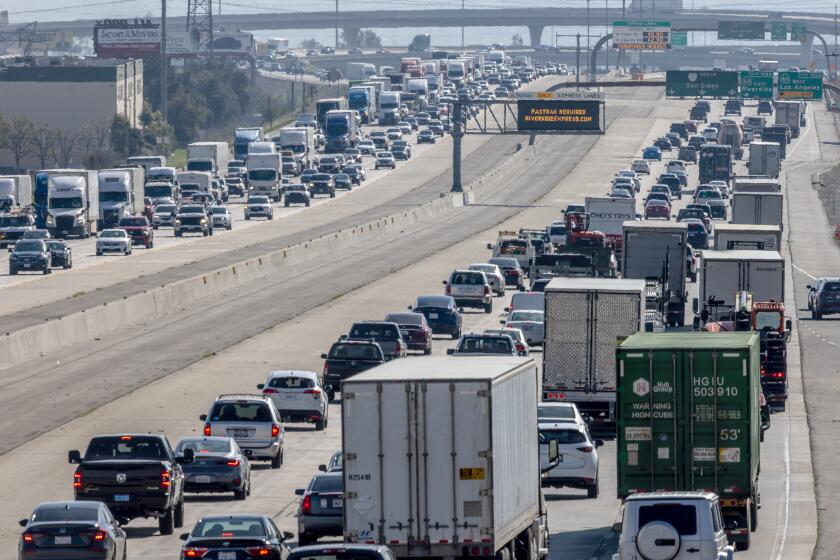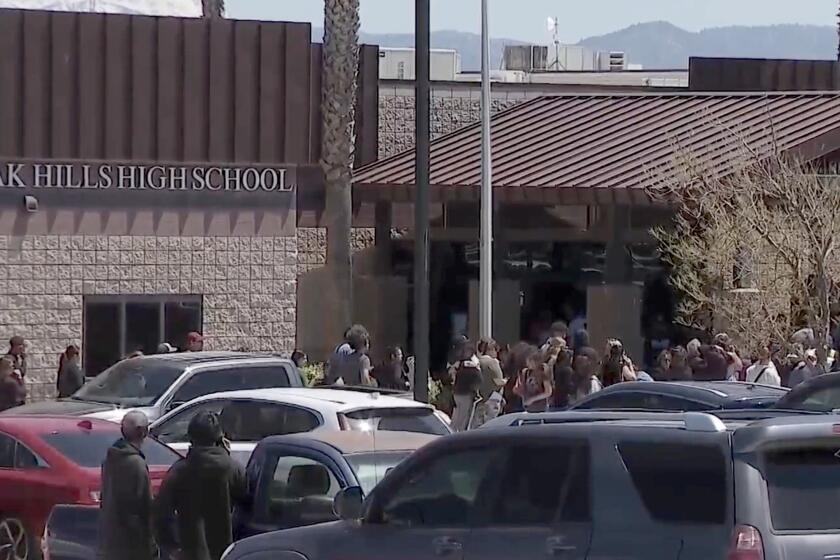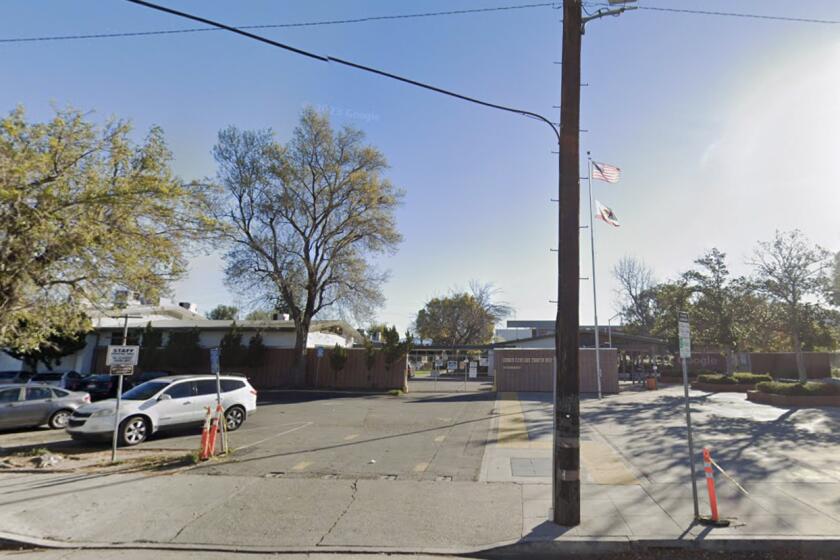City fees may quash this year’s Sunset Junction
Three decades ago, before the vegan cafes, hipster boutiques and fair-trade smoothie bar came to Silver Lake, a group of neighbors launched a little street fair. Their hope was to smooth tensions between the neighborhood’s burgeoning gay population and the middle-class Latino families that had long called the area home.
The Sunset Junction festival grew large, then larger, a symbol of the waves of gentrification that would follow. Eventually it expanded to become one of the city’s best-known music festivals, with $25-a-day tickets, several blocks of street closures and big-name musical acts that draw more than 30,000 revelers each August.
But this year’s festival — scheduled for Aug. 27-28 — may not happen. Officials say organizers owe the city more than $267,000 in event fees from last year’s fair, and are threatening to withhold the required permits until the festival pays up. The festival has also been asked to pay fees of $142,000 for this year.
The unpaid bills recently prompted City Council President Eric Garcetti to call the event the Sunset “No Function” Festival.
The fair’s organizers dispute the fees, saying they have been charged much more for police staffing and street closures than comparable city festivals. At a meeting Wednesday between officials and organizers, no resolution was reached, which means Silver Lake may be without its signature festival for the first time in 31 years.
That’s a prospect that some in the neighborhood welcome.
In recent years, many residents and business owners have complained about the festival’s fenced-off boundaries and the admission fee, which they say has changed its character from a neighborhood event to a commercial affair.
Mark Thompson, who moved to the neighborhood 25 years ago, said he and his partner stopped attending the festival for three reasons: “Too many unknown people, too expensive, and overly commercial.”
“I think it has a confused identity,” said Sarah Dale, who owns a clothing store near Sunset Junction, where Sunset and Santa Monica boulevards meet. “Is it free street fair? Is it a music festival? There’s a reason that Coachella happens in a field. There’s a reason Woodstock happened at a farm. If you’re throwing a major music festival, I don’t think you do it on a narrow city street.”
Others say the festival has simply reflected the changes in the neighborhood.
When the first fair was held in 1980, “Silver Lake was mostly Hispanics and gays,” said Elizabeth Rodriguez, whose parents opened the popular Tacos Delta stand near Sunset Junction that year.
The neighborhood had been the site of one of the nation’s earliest gay-rights protests in 1967, when patrons of a Sunset Boulevard gay bar picketed after a police raid. But there also were incidents of gay bashing in the neighborhood.
The weekend festival, founded by former hairdresser Michael McKinley, was meant to forge a sense of community between old and new residents.
There were carnival rides and music, and no admission fees or fences. In the 1990s, organizers began collecting donations in big garbage cans, with some of the proceeds going to a nonprofit that funded after-school programs and other projects.
As the festival prospered, so did the neighborhood. Property values shot up in the 1990s and 2000s as Silver Lake became a magnet for artists, musicians and young professionals drawn to the neighborhood’s hillside homes and bohemian flavor.
When festival costs began to outstrip donations several years ago, organizers started charging for admission. Los Angeles’ costs for police and road closures also were growing. But in keeping with a practice of better financial times, the city routinely absorbed the fees charged to the festival.
That changed last year, when the city sent organizers a nearly $267,000 bill. The year before, officials had approved a plan to require festivals, fairs and other events to share the city’s costs. The change has brought more than $1 million a year to the revenue-strapped city, officials say.
Jerry Neuman, an attorney who represents the festival, said organizers are happy to pay costs actually incurred by the city. But the city’s figure is too high, he said. In talks with officials, he has complained about police costs, which he says are inflated. He also pointed to Venice’s Abbot Kinney Festival and the Eagle Rock Music Festival, one-day events that require police and street closures and are charged considerably less than Sunset Junction.
During Wednesday’s negotiations, the festival offered to pay $50,000 now and an additional $140,000 within 30 days to cover a portion of the fees from this year and last year’s event.
“The offer is simply unacceptable,” said Board of Public Works Commissioner Andrea Alarcon, who said she denied the offer because the city’s special events policy calls for organizers to pay fees before an event takes place.
Alarcon said the Board of Public Works will probably hear an appeal by the festival organizers Monday. She said the most pressing issue is this year’s fee. “At this point last year’s fees will likely be the subject of litigation,” she said
Organizers have already sold tickets for the event, which this year is headlined by former teenage sensation Hanson.
Rodriguez, of Tacos Delta, who recently moved to Sylmar because she couldn’t afford a home in the neighborhood where she grew up, said she believes the festival should pay the dues.
“Since they started charging, it’s not the same,” she said. “People don’t spend as much as before because the entrance charge is too high.”
kate.linthicum@latimes.com
twitter.com/KateLinthicum
More to Read
Start your day right
Sign up for Essential California for news, features and recommendations from the L.A. Times and beyond in your inbox six days a week.
You may occasionally receive promotional content from the Los Angeles Times.
